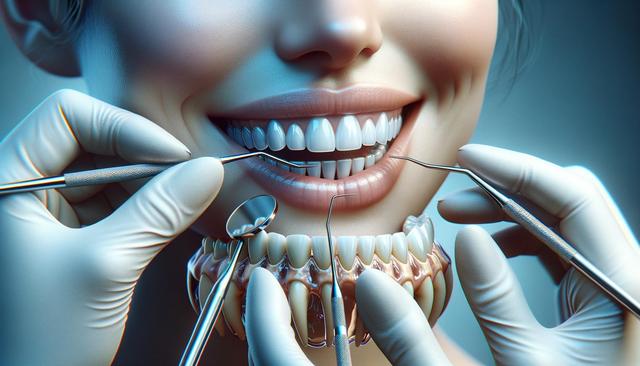What Are Immediate Dentures?
Immediate dentures are a type of full or partial denture that is inserted immediately after tooth extraction. Unlike conventional dentures, which are fitted after the gum tissue has healed, immediate dentures provide instant tooth replacement. This option is particularly useful for individuals who want to maintain their appearance and oral functionality during the healing period. While immediate dentures can help prevent the inconvenience of being toothless, they often require adjustments over time due to changes in the shape of the gums and jaw as they heal.
These dentures are typically pre-made based on impressions taken before the teeth are extracted. Because they are prepared in advance, they may not fit as precisely as permanent dentures, but they serve as an important temporary solution to support eating, speaking, and confidence. Dentists often recommend them as an interim measure before transitioning to permanent dentures once the gums have fully healed.
The Benefits of Choosing Immediate Dentures
Immediate dentures offer several advantages, especially for those who are concerned about the aesthetic and functional effects of losing teeth. Some of the key benefits include:
- Instant replacement of missing teeth, avoiding a gap in your smile
- Preservation of facial structure and prevention of sagging
- Support for speech and chewing during the healing process
- Protection of sensitive gum tissues after extraction
For many patients, the psychological benefit of not having to go without teeth is significant. Being able to maintain a consistent appearance can help boost confidence and ease the transition into wearing dentures. Additionally, immediate dentures can act as a bandage to protect extraction sites, which may aid in a more comfortable initial recovery period.
Considerations and Limitations
While immediate dentures present several benefits, they also come with certain limitations that should be understood before making a decision. One of the primary concerns is fit. Since gums and bones change shape after tooth extraction, the initial fit of immediate dentures may become loose over time. This can necessitate frequent adjustments, relining, or even replacement after full healing.
Other considerations include:
- Potential discomfort as the mouth adjusts to the new appliance
- Increased number of dental visits for follow-up care
- Possible need for future permanent dentures
- Higher initial cost due to the dual denture process (temporary and permanent)
Patients should also be aware that healing under immediate dentures can be less predictable than with no prosthesis, and some individuals may experience sore spots or irritation. It’s essential to maintain a close relationship with your dental provider to monitor healing and ensure proper care and fit throughout the process.
Caring for Immediate Dentures
Proper maintenance is critical to ensure the longevity and comfort of immediate dentures. Because the mouth is healing and more sensitive during the early stages, special care must be taken to clean the dentures and maintain oral hygiene. Here are a few important care tips:
- Remove and rinse dentures after eating to remove food particles and debris
- Brush dentures daily with a soft-bristled brush and non-abrasive denture cleaner
- Soak dentures overnight in a mild cleaning solution to keep them moist and clean
- Rinse your mouth with salt water or an antimicrobial rinse to promote healing
- Attend all follow-up appointments for adjustments and professional cleaning
Adapting to immediate dentures can take time. Patients may experience temporary changes in speech or eating habits, but these typically improve with practice and time. It’s also vital to avoid using regular toothpaste on dentures, as it can be too abrasive and damage the surface.
Transitioning to Permanent Dentures
After the initial healing period, which typically lasts several months, patients often transition to permanent dentures. This process involves taking new impressions once the gum and bone structure have stabilized. Permanent dentures are custom-designed for a more accurate and comfortable fit, improving long-term function and aesthetics.
The transition timeline varies depending on individual healing, with follow-up care playing a crucial role in determining readiness. Your dentist will guide you through this process and recommend the best timing for your final dentures. The move to permanent dentures is often smoother for those who have successfully adapted to immediate dentures, as they are already accustomed to wearing and caring for prosthetics.
During this transition, it’s essential to communicate any concerns to your dental professional. Whether it’s discomfort, difficulty with chewing, or speech issues, early intervention can help ensure a better fit and more satisfying outcome with your permanent set.
Conclusion: Is Choosing Immediate Dentures Right for You?
Immediate dentures provide a practical solution for those facing tooth extraction, offering the advantage of maintaining appearance and function without delay. While they may require adjustments and careful follow-up care, they serve as a valuable temporary option during the healing process.
If you’re considering this treatment, it’s important to consult with a qualified dental professional to discuss your specific needs, expectations, and oral health condition. With the right care and guidance, immediate dentures can make the transition to permanent dentures more seamless and comfortable, supporting both your confidence and oral function during every step.




Leave a Reply